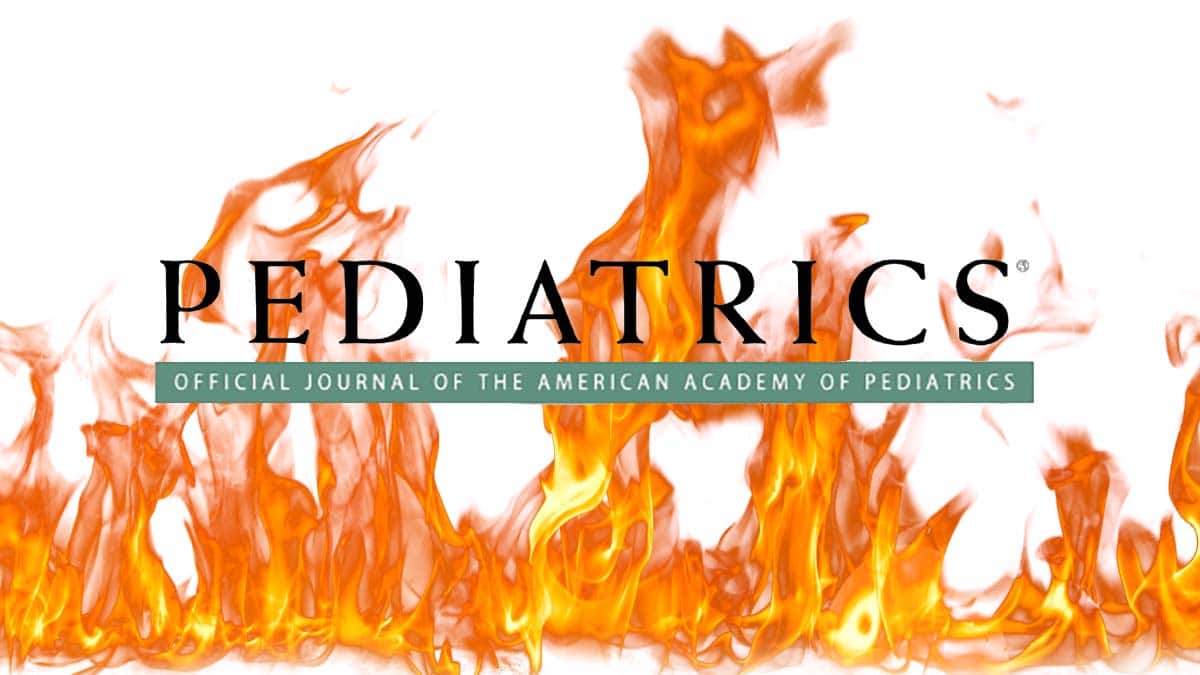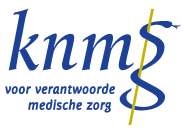Cultural Bias in the AAP’s 2012 Technical Report and Policy Statement on Male Circumcision
Doctors from 16 European countries denounce the American Academy of Pediatrics (AAP) 2012 Circumcision Policy Statement. In an article published in the American Academy of Pediatrics publication “Pediatrics,” these doctors state:
Circumcision conflicts with children’s rights and doctors’ oath and can have serious long-term consequences, state an international group of 38 physicians from 16 European countries in Pediatrics today. They comment on the American Academy of Pediatrics’ new policy on infant male circumcision.
There are no compelling health arguments in favor of circumcision, while it can have serious long-term urological, psychological and sexual consequences. And performing medically unwarranted circumcision of underage boys conflicts with good medical practice. Male infant circumcision conflicts with children’s rights and the doctors’ oath not to do harm.
Morten Frisch, MD, PhDa, Yves Aigrain, MD, PhDb, Vidmantas Barauskas, MD, PhDc, Ragnar Bjarnason, MD, PhDd, Su-Anna Boddy, MDe, Piotr Czauderna, MD, PhDf, Robert P.E. de Gier, MDg, Tom P.V.M. de Jong, MD, PhDh, Günter Fasching, MDi, Willem Fetter, MD, PhDj, Manfred Gahr, MDk, Christian Graugaard, MD, PhDl, Gorm Greisen, MD, PhDm, Anna Gunnarsdottir, MD, PhDn, Wolfram Hartmann, MDo, Petr Havranek, MD, PhDp, Rowena Hitchcock, MDq, Simon Huddart, MDr, Staffan Janson, MD, PhDs, Poul Jaszczak, MD, PhDt, Christoph Kupferschmid, MDu, Tuija Lahdes-Vasama, MDv, Harry Lindahl, MD, PhDw, Noni MacDonald, MDx, Trond Markestad, MDy, Matis Märtson, MD, PhDz, Solveig Marianne Nordhov, MD, PhDaa, Heikki Pälve, MD, PhDbb, Aigars Petersons, MD, PhDcc, Feargal Quinn, MDdd, Niels Qvist, MD, PhDee, Thrainn Rosmundsson, MDff, Harri Saxen, MD, PhDgg, Olle Söder, MD, PhDhh, Maximilian Stehr, MD, PhDii, Volker C.H. von Loewenich, MDjj, Johan Wallander, MD, PhDkk, and Rene Wijnen, MD, PhDll
ABSTRACT
The American Academy of Pediatrics recently released its new Technical Report and Policy Statement on male circumcision, concluding that current evidence indicates that the health benefits of newborn male circumcision outweigh the risks. The technical report is based on the scrutiny of a large number of complex scientific articles. Therefore, while striving for objectivity, the conclusions drawn by the 8 task force members reflect what these individual physicians perceived as trustworthy evidence.
Seen from the outside, cultural bias reflecting the normality of non-therapeutic male circumcision in the United States seems obvious, and the report’s conclusions are different from those reached by physicians in other parts of the Western world, including Europe, Canada, and Australia. In this commentary, a different view is presented by non–US-based physicians and representatives of general medical associations and societies for pediatrics, pediatric surgery, and pediatric urology in Northern Europe.
To these authors, only 1 of the arguments put forward by the American Academy of Pediatrics has some theoretical relevance in relation to infant male circumcision; namely, the possible protection against urinary tract infections in infant boys, which can easily be treated with antibiotics without tissue loss. The other claimed health benefits, including protection against HIV/AIDS, genital herpes, genital warts, and penile cancer, are questionable, weak, and likely to have little public health relevance in a Western context, and they do not represent compelling reasons for surgery before boys are old enough to decide for themselves.
Author Affiliations
Department of Epidemiology Research, Statens Serum Institut, Copenhagen and Center for Sexology Research, Department of Clinical Medicine, alborg University, Aalborg, Denmark;
Department of Pediatric Surgery, Hôpital Necker Enfants Malades, Université Paris Descartes, Paris, France;
Lithuanian Society of Paediatric Surgeons, Kaunas, Lithuania;
Department of Pediatrics, Landspitali University Hospital, Reykjavik, Iceland;
Children’s Surgical Forum of the Royal College of Surgeons of England, London, United Kingdom;
Polish Association of Pediatric Surgeons, Gdansk, Poland;
Working Group for Pediatric Urology, Dutch Urological Association, Utrecht, Netherlands;
Departments of Pediatric Urology, University Children’s Hospitals UMC Utrecht and AMC Amsterdam, Netherlands;
Austrian Society of Pediatric and Adolescent Surgery, Klagenfurt, Austria;
Paediatric Association of the Netherlands, Utrecht, Netherlands;
German Academy of Paediatrics and Adolescent Medicine, Berlin, Germany;
Center for Sexology Research, Department of Clinical Medicine, Aalborg University, Aalborg, Denmark;
Department of Pediatrics, Rigshospitalet, Copenhagen, Denmark;
Departments of Pediatric Surgery, Landspitali University Hospital, Reykjavik, Iceland, and Karolinska University Hospital, Stockholm, Sweden;
German Association of Pediatricians, Cologne, Germany;
Department of Pediatric Surgery, Thomayer Hospital, Charles University, Prague, Czech Republic;
British Association of Paediatric Urologists, London, United Kingdom;
British Association of Paediatric Surgeons, London, United Kingdom;
Committee on Ethics and Children’s Rights, Swedish Paediatric Society, Stockholm, Sweden;
Ethics Committee of the Danish Medical Association, Copenhagen, Denmark;
Ethics Committee of the German Academy of Pediatrics and Adolescent Medicine, Berlin, Germany;
Finnish Association of Pediatric Surgeons, Tampere, Finland;
Department of Pediatric Surgery, Helsinki University Children’s Hospital, Helsinki, Finland;
Department of Pediatrics, IWK Health Centre, Dalhousie University, Halifax, Nova Scotia, Canada;
Ethics Committee of the Norwegian Medical Association, Oslo, Norway;
Estonian Society of Paediatric Surgeons, Tallinn, Estonia;
Norwegian Paediatric Association, Tromsø, Norway;
Finnish Medical Association, Helsinki, Finland;
Latvian Association of Pediatric Surgeons, Riga, Latvia;
Department of Pediatric Surgery, Our Lady’s Children’s Hospital, Dublin, Ireland;
Department of Surgery, Odense University Hospital, Odense, Denmark;
Department of Pediatric Surgery, Landspitali University Hospital, Reykjavik, Iceland;
Department of Pediatrics, Helsinki University Children’s Hospital, Helsinki, Finland;
Swedish Pediatric Society, Stockholm, Sweden;
Department of Pediatric Surgery, Dr. v. Haunersches Kinderspital, Ludwig-Maximilians Universität, Munich, Germany;
Commission for Ethical Questions, German Academy of Pediatrics, Frankfurt, Germany;
Swedish Society of Pediatric Surgery, Stockholm, Sweden; and
Dutch Society of Pediatric Surgery, Rotterdam, Netherlands



So how about a posting about the AAP’s response to contradict these European doctors? I am the mother of 2 boys, I had them both circumcised for health reasons my doctor told me & my husband about, I think its better too, but would like to hear other opinions from AAP.
While we’re waiting for AAP, let’s see what we’re saying: http://www.youtube.com/watch?v=4n4S6CQTPJQ begin viewing @ 13:50. Then go to the AAP web site. Read what these European Doctors are saying and the comments from readers. Then check for AAP response, if any. Did you know that 2/3 of the doctors in Sweden refuse to perform circumcisions? Or that recently for a short period, circumcisions of minors were illegal in Germany until the government caved in to Jewish-Muslim politics?
Your doctor gets paid $300 for each circumcision. He can also sell it to biotech companies for a profit. Of course he would recommend it for “health” reasons. I’m afraid you and your sons were duped. You have my sympathies.
I restored my foreskin to full mechanical correctness. That said all my sexual nerves in the foreskin will never be again. Basically the USA farms the boys at birth-cosmetic companies make expensive skin serums from Fibroblasts in the 4skin tissues. There is rarely a reason to cut-it’s all about money and the medical system depends on this too. Hospitals sell it to medical labs, they make materials for various products and then everyone gets the benefits of newborn boys’ 4skin,…., except the newborn boys. Parents should stop being lazy and get out there and really do their homework. Doctors are very self absorbed and they get into a mind set and it’s tough to get past it. But if you want to know what real Males feel about cutting? join a site for restoration and you’ll read real stories and feelings-see the butchery that cutting affords, and the progress many make in at least re-hooding thru non-surgical methods. I thot I had to live my parents decisions on this, I was BUTCHERED at birth-I am glad I now fool even high quality Urologists! My doctors have changed me to intact! And my sex life has returned since for 3 years now I have been covered and altho my glan is still bumpy from the tearing away of the 4skin, they are soft and moist bumps with a lot of sensitivity restored. If it’s it is so very wrong for the girls for ANY REASON, why is it ok to farm our boys? IT IS NOT!
[…] Government, similar to the way that international group of 38 physicians from 16 European countries denounced the American Acadamy of Pediatrics’ revised policy statement on male […]
[…] signed by 38 physicians from 16 European nations, and Canada’s own Dr. Noni MacDonald. Source: http://intaction.org/circumcision-policy-denounced/ Full Document: […]
[…] of circumcised males and one of the highest rates of HIV infections among industrialized nations. Other countries whose medical professionals have much more experience in the care of uncircumcised individuals […]